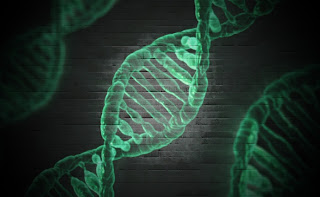Has Religion become Irrelevant?
 Has religion become irrelevant? This is an odd question for a Heathen to ask others who believe in our gods, but it is a serious question. Those of you who have read this blog for any length of time are probably rolling your eyes and sighing because I came from fairly agnostic to almost atheist beliefs, only to be yanked into Heathenry by a few gods. Don’t get your panties in a wad; I still consider myself a Heathen. But this question of Has religion become irrelevant? echoes this pronouncement by the National Geographic. So, like most things that I write, I’m going to be trodding on some toes here.
Has religion become irrelevant? This is an odd question for a Heathen to ask others who believe in our gods, but it is a serious question. Those of you who have read this blog for any length of time are probably rolling your eyes and sighing because I came from fairly agnostic to almost atheist beliefs, only to be yanked into Heathenry by a few gods. Don’t get your panties in a wad; I still consider myself a Heathen. But this question of Has religion become irrelevant? echoes this pronouncement by the National Geographic. So, like most things that I write, I’m going to be trodding on some toes here.
The Fastest Growing “Religion”
The fastest growing religion in developed countries isn’t a religion at all. It’s what those wankers who compile statistics refer to as “nones.” The “nones” are those without a religious affiliation, i.e., agnostics, atheists, and those who just don’t care. They’re such a growing force that they’re considered the second largest “religious” affiliation in half the nations around the world, including the United States, the bastion of Christianity.
 It’s not surprising that some underdeveloped countries and former communist countries have had an increase in religion, but overall in developed countries, religion isn’t growing. If there’s good news to be had by the pagan religions, the non-Christian faiths have grown 1.2 percent in the United States. That’s pretty small in my book, when you consider all non-Christian faiths make up a little under 6 percent in this country. However, we’re looking at nearly 71 percent of Americans consider themselves Christian in some way.
It’s not surprising that some underdeveloped countries and former communist countries have had an increase in religion, but overall in developed countries, religion isn’t growing. If there’s good news to be had by the pagan religions, the non-Christian faiths have grown 1.2 percent in the United States. That’s pretty small in my book, when you consider all non-Christian faiths make up a little under 6 percent in this country. However, we’re looking at nearly 71 percent of Americans consider themselves Christian in some way.
Why People Don’t Believe
I read through the article and it had some interesting points. People are quick to point to science as the reason more people are leaving the churches, and they’re not entirely wrong. As science is able to provide answers, it becomes apparent that those things that people long ago thought were miracles or impossible are actually quite explainable. But although science had a lot to do with secularism, the ability for the skeptic to meet with other skeptics online and in person helps solidify the feelings of there being no god or gods is probably a stronger pull. After all, people usually feel closer to their gods when they are together and praying than alone. (I said usually.) It helps to have people who believe the same things you do around to strengthen your beliefs (or lack thereof). The other reason for lack of belief has to do with education. The more educated you are, the less likely you’ll believe in a deity or deities. (This isn’t to say that highly educated people don’t believe in a god or gods. This simple shows that there is a correlation between education and atheism.)
 Science, Dammit!
Science, Dammit!
I talk quite a bit about science, and quite honestly, I tend to accept scientific explanations over things that are often called supernatural. Too often people make up stories about things and they’re retold as fact, but the reality is that without critical thinking and scientific proof, it’s just old wives’ tales and urban legends.
As science and technology continue to advance, less and less natural phenomena is ascribed to the supernatural. The Earth revolves around the sun. We do not have a sun which has a tangible chariot being driven by Sunna across the sky, nor is the moon carried in a physical chariot across the sky driven by Mani. The sun and moon appear to move across the sky because of the rotation of the Earth. But neither are fixed. The moon rotates around the Earth, and the sun is moving and dragging us along in the Sagittarius Arm at 45,000 miles per hour.
Does Religion and Science Conflict?
It’s easy with the talk of science to discount religion in its entirety. Religion was often used to answer the tough questions of the universe: How did we get here? How was the earth made? In much earlier times, people told stories to explain how these things happened. They weren’t accurate or factual, but they were satisfying stories and were told by people to others in a way to understand the world around them.
Logic and reasoning gradually took hold. As we searched for answers, we eventually came up with theories that fit the overall evidence that we found. As our methods and testing became more advanced, we could actually accept the theories as fact, or near fact. Stories about Odin and his brothers forming humans from trees are interesting, but we know from archaeology that humans evolved over millions of years to what we are now.
Religion and science often clashed over dogma, especially when the Roman Catholic Church held power. Heretics were often excommunicated, or worse. But facts are facts. People can claim that the world is flat all they want, but because the world is really round, eventually the truth wins out.
Is Religion Relevant?
So, the question remains is if religion is still relevant when we have science to explain nature and the physical laws of the universe. More and more religion has taken to explaining what is in the gaps rather than coincide with what we know is true. Known as the “god of the gaps” or divine fallacy among atheists, many religious types use that as a reason for why their god(s) exist. It goes something like, “well we don’t know what started the big bang, therefore the Christian God (or name your favorite creator god, i.e., Yahweh, Odin, Atum, Vishnu, etc) must have created it.” It’s a fallacy because it assumes that we won’t find an answer.
If we take our myths at face value, we can say with certainty that they are wrong. The gods didn’t carve humans from trees; the Earth isn’t the bones and body of some frost giant named Ymir. But if we take them at a metaphorical level, we begin to see the mindset and even the understanding of our ancestors and recognize certain elements in them that science postulates is true.
Let’s look at another religion, for the sake of argument. The number of miracles the Christian god has performed has decreased rapidly with the advent of cameras. When multiple people can record video on their cellphones, it’s hard to claim supernatural occurrences. Those who do are highly suspect due to clever video editing. They often use pseudo-science to back up claims. In other words, I suspect a large portion of their magic is just fallacy, wishful thinking, and outright falsehoods.
I use the Christian god as an example because so many in the United States call themselves Christian, but the statement holds true for pagans in general. I haven’t seen any of the M-word* that convinces me that it truly exists that can’t be rationally explained through science in some fashion. (Granted it may be in areas such as quantum physics, but it may be able to be explained.)
That being said, I’ve experienced enough weird shit as a Heathen that hasn’t been captured on video because I don’t go around with a cellphone taking video of everything I see. Even if I did, it happen so fleetingly that I couldn’t have picked up my phone fast enough to capture it. Some isn’t visual. Some happens in my head and my dreams.
I suspect religion and our belief system will remain relevant largely because we’re human, and we may not be able to know everything there is out there. Even if science figures out everything about our universe, there are other dimensions and other universes out there, if one is to believe in the multiverse. If there is just one universe but it is infinite, then there is even more weirdness that we can’t possibly wrap our heads around because it is bigger than we can ever reach in billions of lifetimes.
The TL;DR Takeaway
Gods, if you’ve gotten this far on this post, I must thank you. If you’ve skipped everything I said above, go back and read it.
So, what do I think? I believe that the gods and probably religion will remain relevant as long as we are human. They may morph over time and may just become metaphors, or they may grow with our knowledge.
At this time, I’m willing to accept that there are other beings, more powerful than ourselves, who either set in motion the creation of our Universe, or are manifestations of the very forces they wield. We know that string theory insists that there are at least 10 dimensions, and maybe more. Who knows what is hiding in those areas we can’t see?
Yeah, maybe it is the god of the gaps fallacy written large. But all I know was I was willing to stand by my agnosticism until Tyr and Thor pulled me into Heathenry. At some point, you’ve got to make a decision about your beliefs. I know I did.
*M-word = magic
—
Did you know that if you’re getting this free that you’re only getting HALF my posts? It’s true. You’re missing out on some of my best work, including the series, When the Muse is a Bitch. Now, did you know that you can get ALL of my paid content for just $1 a post? It’s true. Which means you pay what it normally costs to buy a cup or two of Starbuck’s coffee a month. And you get some amazingly good shit. So, what are you waiting for? Give a paid subscription to The Rational Heathen a try and you get some pretty cool perks. Wallpapers, reference material, a separate chat room, and more. Sign up at Patreon now, and become a patron of the Rational Heathen!









